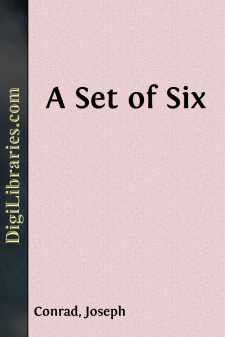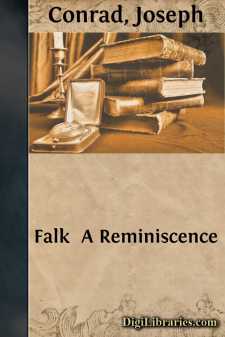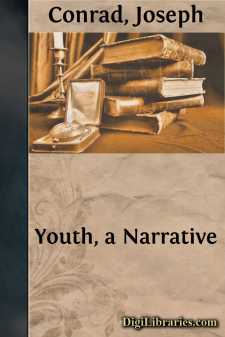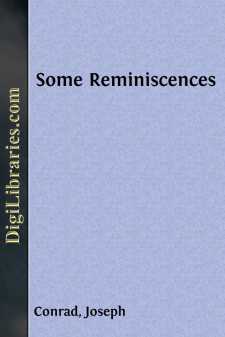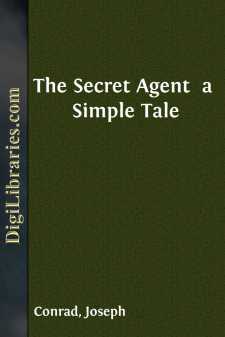Categories
- Antiques & Collectibles 13
- Architecture 36
- Art 48
- Bibles 22
- Biography & Autobiography 813
- Body, Mind & Spirit 142
- Business & Economics 28
- Children's Books 15
- Children's Fiction 12
- Computers 4
- Cooking 94
- Crafts & Hobbies 4
- Drama 346
- Education 46
- Family & Relationships 57
- Fiction 11829
- Games 19
- Gardening 17
- Health & Fitness 34
- History 1377
- House & Home 1
- Humor 147
- Juvenile Fiction 1873
- Juvenile Nonfiction 202
- Language Arts & Disciplines 88
- Law 16
- Literary Collections 686
- Literary Criticism 179
- Mathematics 13
- Medical 41
- Music 40
- Nature 179
- Non-Classifiable 1768
- Performing Arts 7
- Periodicals 1453
- Philosophy 64
- Photography 2
- Poetry 896
- Political Science 203
- Psychology 42
- Reference 154
- Religion 513
- Science 126
- Self-Help 84
- Social Science 81
- Sports & Recreation 34
- Study Aids 3
- Technology & Engineering 59
- Transportation 23
- Travel 463
- True Crime 29
A Set of Six
by: Joseph Conrad
Categories:
Description:
Excerpt
AUTHOR'S NOTE
The six stories in this volume are the result of some three or four years of occasional work. The dates of their writing are far apart, their origins are various. None of them are connected directly with personal experiences. In all of them the facts are inherently true, by which I mean that they are not only possible but that they have actually happened. For instance, the last story in the volume, the one I call Pathetic, whose first title is Il Conde (misspelt by-the-by) is an almost verbatim transcript of the tale told me by a very charming old gentleman whom I met in Italy. I don't mean to say it is only that. Anybody can see that it is something more than a verbatim report, but where he left off and where I began must be left to the acute discrimination of the reader who may be interested in the problem. I don't mean to say that the problem is worth the trouble. What I am certain of, however, is that it is not to be solved, for I am not at all clear about it myself by this time. All I can say is that the personality of the narrator was extremely suggestive quite apart from the story he was telling me. I heard a few years ago that he had died far away from his beloved Naples where that "abominable adventure" did really happen to him.
Thus the genealogy of Il Conde is simple. It is not the case with the other stories. Various strains contributed to their composition, and the nature of many of those I have forgotten, not having the habit of making notes either before or after the fact. I mean the fact of writing a story. What I remember best about Gaspar Ruiz is that it was written, or at any rate begun, within a month of finishing Nostromo; but apart from the locality, and that a pretty wide one (all the South American Continent), the novel and the story have nothing in common, neither mood, nor intention and, certainly, not the style. The manner for the most part is that of General Santierra, and that old warrior, I note with satisfaction, is very true to himself all through. Looking now dispassionately at the various ways in which this story could have been presented I can't honestly think the General superfluous. It is he, an old man talking of the days of his youth, who characterizes the whole narrative and gives it an air of actuality which I doubt whether I could have achieved without his help. In the mere writing his existence of course was of no help at all, because the whole thing had to be carefully kept within the frame of his simple mind. But all this is but a laborious searching of memories. My present feeling is that the story could not have been told otherwise. The hint for Gaspar Ruiz the man I found in a book by Captain Basil Hall, R.N., who was for some time, between the years 1824 and 1828, senior officer of a small British Squadron on the West Coast of South America. His book published in the thirties obtained a certain celebrity and I suppose is to be found still in some libraries. The curious who may be mistrusting my imagination are referred to that printed document, Vol....


